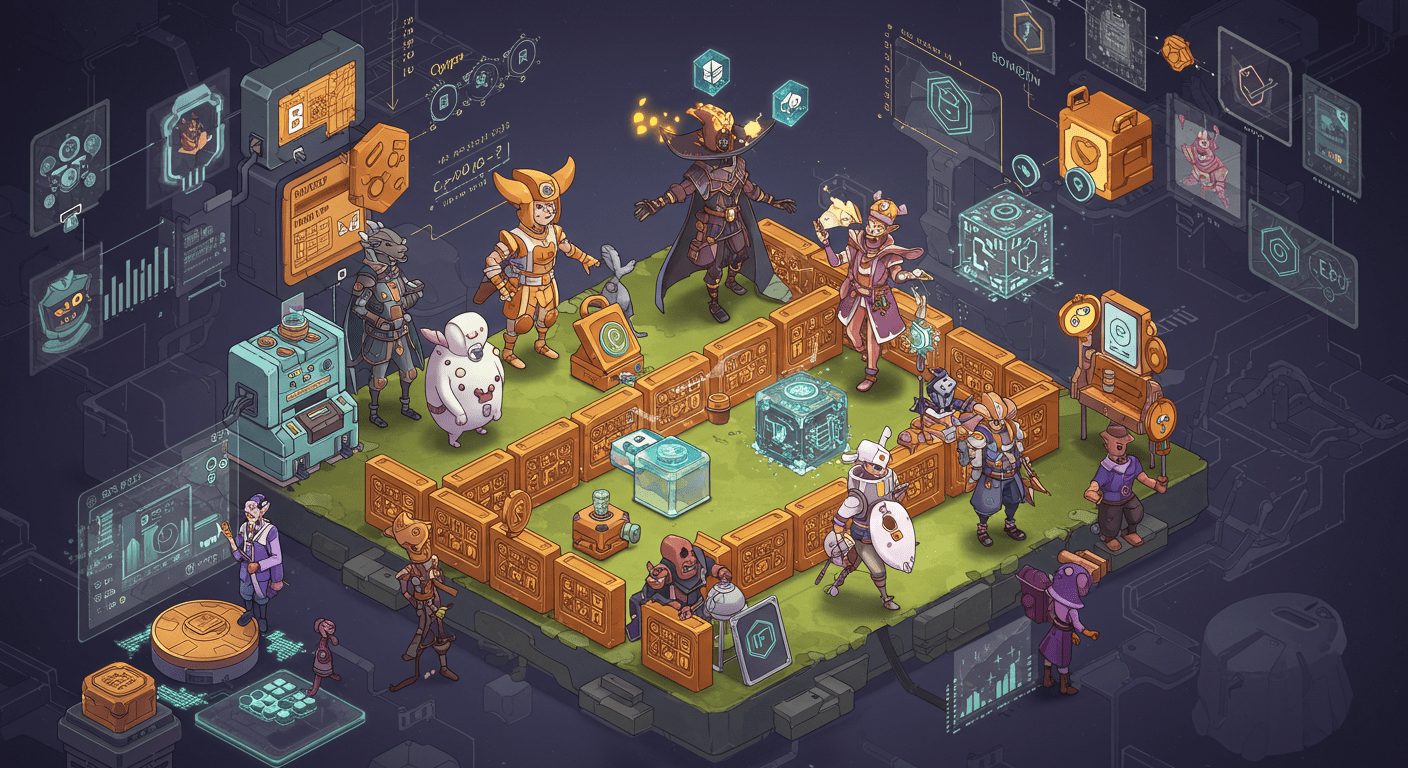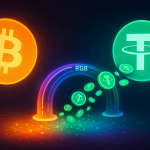As we approach 2025, the trend of blockchain gaming is on the rise, significantly altering the conventional gaming landscape through decentralized ownership, play-to-earn systems, and greater transparency. This article delves into the essence of blockchain gaming, highlighting its advantages, challenges, and its potential to transform experiences for both players and developers.
Understanding Blockchain Gaming


Blockchain gaming is the application of blockchain technology within video games, allowing players to genuinely own their in-game assets. In contrast to traditional gaming, where assets are maintained on centralized servers and governed by developers, blockchain games utilize decentralized ledgers for tracking ownership and transactions. This setup enables players to buy, sell, and trade in-game items—often as non-fungible tokens (NFTs)—across various marketplaces, fostering greater player control and economic opportunities.
Main Characteristics of Blockchain Gaming
- Authentic Ownership: Players possess full ownership of their in-game items, validated by blockchain technology, making it impossible for developers to alter or delete these assets.
- Play-to-Earn Systems: Many blockchain games allow players to gain actual value through gameplay, potentially earning cryptocurrency or trading significant in-game items.
- Asset Interoperability: Blockchain facilitates assets being utilized across multiple games and platforms, expanding player experiences by enabling the use of characters or items in different settings.
- Decentralized Economies: These games often create their own economies featuring tradeable tokens, enhancing player involvement in the economic aspects.
- Transparency and Security: Blockchain’s unchangeable records improve transaction transparency, minimizing fraud and building trust among players.
Advantages of Blockchain Gaming
- Player Empowerment: By providing true asset ownership, blockchain gaming allows players to effectively monetize their time and skills, fostering stronger engagement and loyalty.
- New Revenue Opportunities for Developers: Developers can leverage blockchain to develop unique monetization methods, such as selling NFTs or collecting transaction fees from resales.
- Improved Player Experience: The freedom to trade assets and earn genuine value enhances overall gaming enjoyment compared to traditional systems that often require constant spending without clear rewards.
- Global Access: Blockchain gaming eliminates geographical limitations, enabling players worldwide to engage in a connected economy without relying on conventional banking systems.
Obstacles in Blockchain Gaming
- Regulatory Ambiguity: The unclear legal framework around cryptocurrencies and NFTs poses challenges for developers, who must carefully navigate these issues to avoid legal complications.
- Technical Challenges: Integrating blockchain technology may be overwhelming for casual gamers unfamiliar with concepts like cryptocurrency wallets.
- Market Fluctuations: The values of in-game currencies and NFTs can fluctuate widely, exposing players to potential risks if they invest considerable time or resources in a game.
- Security Risks: While blockchain increases security, smart contracts can be vulnerable to breaches if they are not properly secured, making it essential to implement strong security protocols to protect player assets.
Notable Blockchain Games to Watch
Here are some prominent blockchain games that have made waves recently:
- Axie Infinity: This leading play-to-earn game lets players breed, battle, and trade creatures known as Axies, represented as NFTs.
- The Sandbox: A virtual space where users can create, own, and monetize their gaming experiences using NFTs and the SAND token.
- Decentraland: This decentralized VR platform allows users to purchase land, create content, and engage with others using NFTs for virtual properties.
- Gods Unchained: A trading card game that grants players genuine ownership of their cards as NFTs, allowing for free trading on secondary markets.
Final Thoughts
Blockchain gaming signifies a remarkable change in how ownership and value are perceived in gaming. By harnessing decentralized technologies, it provides players with real ownership of their assets and introduces innovative economic models that benefit both gamers and developers. As the industry develops through 2025 and beyond, overcoming regulatory hurdles and improving user experiences will be vital for widespread acceptance. With its capacity to fundamentally redefine the gaming sphere, blockchain gaming is set to play a crucial role in the digital economy.





